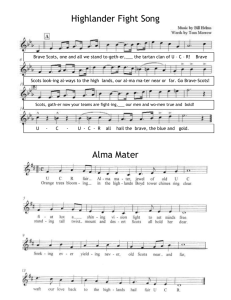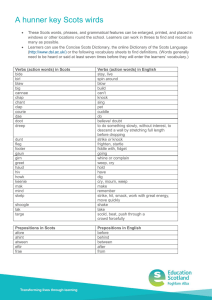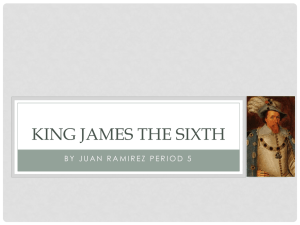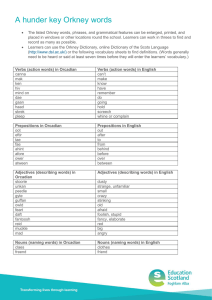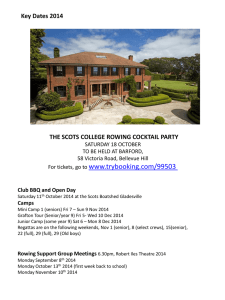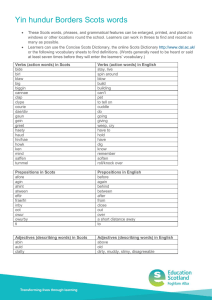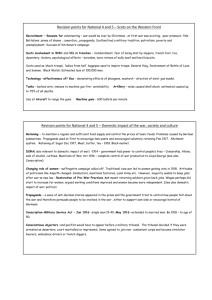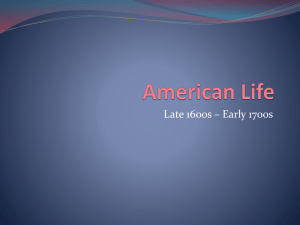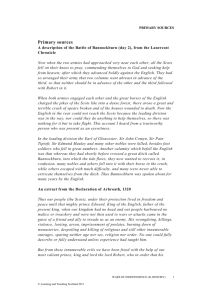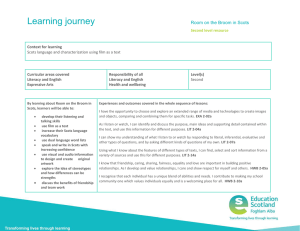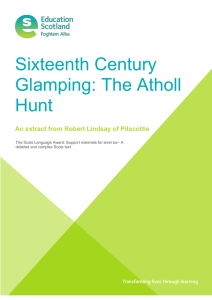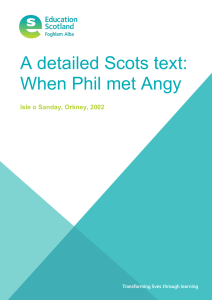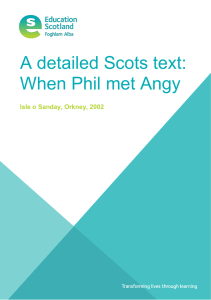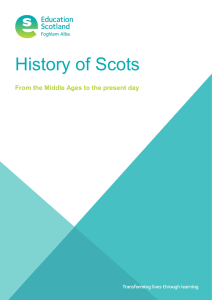A hunner key Gallowa Scots wirds
advertisement
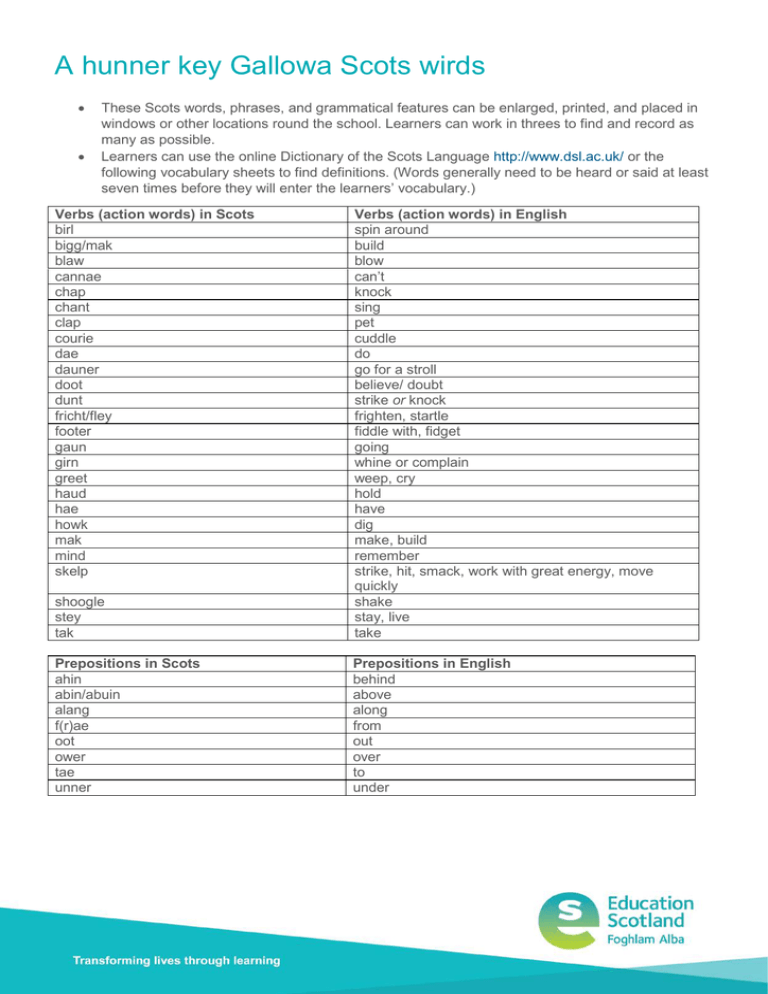
A hunner key Gallowa Scots wirds • • These Scots words, phrases, and grammatical features can be enlarged, printed, and placed in windows or other locations round the school. Learners can work in threes to find and record as many as possible. Learners can use the online Dictionary of the Scots Language http://www.dsl.ac.uk/ or the following vocabulary sheets to find definitions. (Words generally need to be heard or said at least seven times before they will enter the learners’ vocabulary.) Verbs (action words) in Scots birl bigg/mak blaw cannae chap chant clap courie dae dauner doot dunt fricht/fley footer gaun girn greet haud hae howk mak mind skelp shoogle stey tak Verbs (action words) in English spin around build blow can’t knock sing pet cuddle do go for a stroll believe/ doubt strike or knock frighten, startle fiddle with, fidget going whine or complain weep, cry hold have dig make, build remember strike, hit, smack, work with great energy, move quickly shake stay, live take Prepositions in Scots ahin abin/abuin alang f(r)ae oot ower tae unner Prepositions in English behind above along from out over to under Transforming lives through learning Adjectives (describing words) in Scots auld braw clarty crabbit drookit feart glaikit heich laigh ma mackit muckle pechin peekit lookin perjink scunnert shilpit slaister sleekit snell thrawn thon tottie wee wersh Adjectives (describing words) in English old fine dirty, muddy, slimy, disagreeable bad tempered drenched afraid stupid high low my filthy big, large short of breath sickly, not well, drawn, listless neat fed up feeble messy, awkward, clumsy sly very cold stubborn, determined, headstrong that very small small lacking in taste/sour Nouns (naming words) in Scots baa beas/ kye boay byre cloot claes coup craitur the day freen gloamin glaur hoose heid lassie the morra tatties toon watter wean wumman yowe Nouns (naming words) in English ball cattle boy cowshed cloth clothes rubbish dump creature/person today friend dusk mud house head girl tomorrow potatoes town; farmstead; the Toon – Glasgow water child woman ewe Transforming lives through learning Pronouns (short words that replace nouns) in Scots naethin/ nocht ocht wha/ whae whit yi Pronouns (short words that replace nouns) in English nothing anything who what, which you Numbers in Scots yin twa/ twae fower seiven echt eleeven hunner thoosan Numbers in English one two four seven eight eleven hundred thousand Adverbs in Scots doon gey noo canny-like Adverbs in English down very, somewhat, rather now carefully, cautiously Exclamations/ Greetings Ach away! Hoo’s it gaun? Hingin thegither exclamation of surprise How are you? Keeping well – just! Some features of Scots grammar and speech Negative forms of verbs are created by adding ‘nae’ at end – ‘cannae’, ‘mustnae’ etc. Present participles end in ‘in’ – never ‘ing’ (greetin, haiverin, slaiverin), so there is no need for an apostrophe unless it is an English word and the ‘g’ has been dropped in pronunciation. Scots uses older, short vowel sounds in words like ‘hoose’, ‘moose’ and ‘coo’ (like Norwegian) instead of ‘house’, ‘mouse’ and ‘cow’ (like English). In Scots, the plural of ‘year’ is ‘year’, not ‘years’. E.g. ‘siven year ago’. Transforming lives through learning
